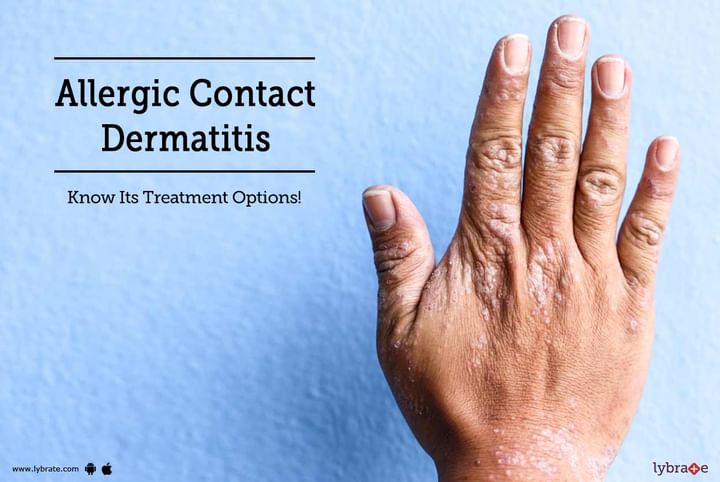Allergic Contact Dermatitis - Know Its Treatment Options!
Has your skin become dry or itchy? Has it darkened or reddened after contact with a foreign material or substance? These symptoms may indicate allergic contact dermatitis (ACD), a skin condition which is caused by an allergic reaction of the skin after coming in contact with an external material. The condition usually arises after some time of the skin coming in contact with the material.
Causes
ACD is commonly caused due to skin contact with nickel or silver jewellery, latex gloves, several chemicals present in cosmetics, perfumes and poison oak. After being exposed to a foreign substance, the body releases inflammatory chemicals, which lead to irritation and itching on the skin. The skin may become scaly, flaky, appear leathery and sometimes even blisters may develop.
Treatment
There are several ways to treat ACD. They are as follows:
- Avoiding the cause: Identification and avoidance of the allergens and irritants which cause ACD is the first step of treatment. By avoiding these allergens or reducing your exposure to them, the symptoms can be reduced.
- Emollients: Emollients offer a form of moisturizing treatment and are directly applied to the skin for reduction of water loss. A protective film covers the skin. They improve the dry and scaly skin and form a protective barrier against the allergen.
- Topical corticosteroids: In case your skin is severely red, inflamed or sore, a topical corticosteroid can be applied to your skin directly. This helps in reducing the inflammation quickly. Topical corticosteroids are of different strengths and the dosage to be used depends upon the severity and location of ACD.
You may be instructed to use a strong topical corticosteroid in case of intense ACD. When the condition is less severe, a milder potency of corticosteroid should be used. For treating contact dermatitis on the face, genitals or in the crease of the joints, a weaker dosage is used, whereas for treating it on the soles of your feet and the palms, a stronger dosage is required. Major cases of ACD go away on their own. However, when the condition is severe and the rashes develop near the eyes or mouth or increase in extent, you should consult a dermatologist right away for proper and timely treatment.



+1.svg)
